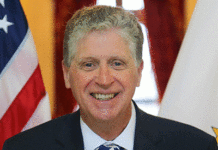The California legislature has voted to extend the state’s cap-and-trade program by 10 years to 2030 while also codifying the Low Carbon Fuel Standard (LCFS) into law.
In what was expected to be a close vote, the California State Senate and Assembly each passed the cap-and-trade extension package (A.B.398 and A.B.617) by the two-thirds and simple majority votes necessary on Monday evening.
“The passage of the cap-and-trade extension package is a win for the RNG industry and the production of low-carbon biofuels in California,” says Nina Kapoor, manager of legislative and regulatory affairs for the Coalition for Renewable Natural Gas (RNG Coalition).
“In addition to extending cap-and-trade, state law will now also recognize low-carbon transportation alternatives for purposes of allocating future Greenhouse Gas Reduction Funds (GGRF) from related auction revenues – funds that are needed to realize increased in-state development, deployment and utilization of RNG,” she says.
A.B.398 (introduced by Assemblymember Eduardo Garcia), and its companion bill A.B.617, will not only extend the ability for California to continue using cap-and-trade to reduce greenhouse-gas emissions 40% below 1990 levels by the year 2030, but also codify the LCFS and identify low- and zero-carbon transportation alternatives and short-lived climate pollutants, such as methane, in a list of funding priorities for auction revenues.
“We would like to thank Assemblymember Eduardo Garcia for his leadership. The explicit identification in his bill of low- and zero-carbon transportation alternatives and short-lived climate pollutants as funding priorities for GGRF auction revenues is critical in terms of realizing full production potential of RNG and other biofuels in-state,” adds Johannes Escudero, CEO of the RNG Coalition. “The codification of the LCFS program into state law will provide additional market certainty that the industry needs to continue developing RNG for transportation fuel use both in California and across the country.”
Historically, the Low Carbon Transportation Fund has provided no money for in-state biofuels production, and cap-and-trade-related GGRF has focused very little on the reduction of toxic air contaminants and short-lived climate pollutants outside of methane from the dairy sector.
Proponents of the package were able to overcome significant political challenges to achieve two-thirds votes from members in both the State Senate and the Assembly. In the end, seven Republicans voted for and three Democrats voted against. The RNG Coalition says its advocacy efforts late into the evening were instrumental in delivering at least six key votes in support of the package, including those from both parties.







